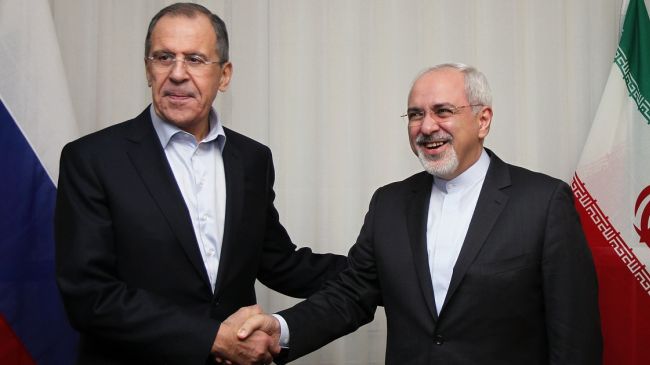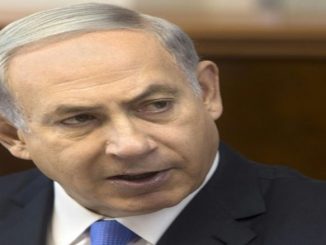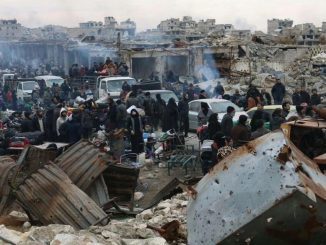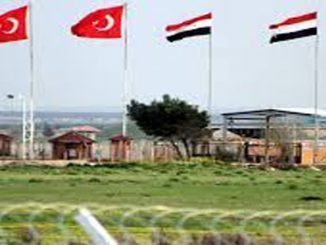
Iran’s Foreign Minister Mohammad Javad Zarif called for an “immediate and lasting humanitarian ceasefire” in Syria in a telephone conversation with his Russian counterpart.
What seems odd. is that both Russia and Iran are making the situation in Syria worse while calling for “ceasefire” and solutions for the Syrian crisis.
The conversation was the second between Zarif and Sergei Lavrov over the past 48 hours, coming in the wake of a fresh international push to end the conflict, Press TV reported.
Officials said US Secretary of State John Kerry would meet Lavrov in Switzerland on Saturday to discuss Syria. The meeting was expected to include foreign ministers from Turkey, Qatar, Saudi Arabia and Iran. However, an informed Iranian source rejected the report afterwards, saying Zarif has no plans to take part in the Lausanne meeting.
Zarif earlier held phone talks with EU foreign policy chief Federica Mogherini, stressing Iran’s “principled position on the all-out fight against terrorism and terrorist groups” and finding “an inclusive political solution” to the Syria conflict.
Zarif has also called the UN to take part in fighting “terrorism” in Syria and help find “peaceful solutions” to the crises, as he congratulated the new UN secretary general.
“At the critical time that you will assume the leadership of… [the UN], it is imperative that the United Nations engage in the crucial fight against all aspects of violent extremism and play effectively and efficiently its part in efforts towards finding peaceful and locally-owned solutions for the ongoing crises in Yemen and Syria,” read part of Zarif’s congratulatory message to the new UN chief.
Meanwhile, Lavrov contacted his French counterpart Jean-Marc Ayrault to discuss fresh efforts for putting an end to the conflict.
Iranian regime and Assad regime are close strategic allies, and Iran has provided significant support for the Syrian Government in the Syrian crisis, including logistical, technical and financial support, as well as training and some combat troops.
Iran has sent thousands of combat troops to Syria, including the elite Iranian Revolutionary Guard Corps (IRGC) and the Iran-backed Lebanese Hezbollah fighters, as well as Shiite militias from Iraq, Afghanistan and Iran.
Those militias provided support for Assad regime, helped him to achieve victory against rebels in many areas of Syria, and took part in his crimes against the Syrian civilians.
Russia launched an air campaign on September 30 last year in support of Syrian government forces, in a military intervention that has been widely credited with helping turn the balance of power in favour of President Bashar al-Assad.
Since then, at least 9,364 people have been killed in Russian raids, according to the Britain-based Syrian Observatory for Human Rights.
The monitor said the death toll included about 3,800 civilians and 5,500 fighters from the Islamic State (ISIS).
A further 20,000 civilians have been wounded in Russia’s year-long offensive of air strikes.
The Syrian crisis began as a peaceful demonstration against the injustice in Syria. Assad regime used to fire power and violence against the civilians and led to armed resistance. 450.000 Syrians lost their lives in the past five years according to UN estimates, and more than 12 million have lost their homes. Syria



